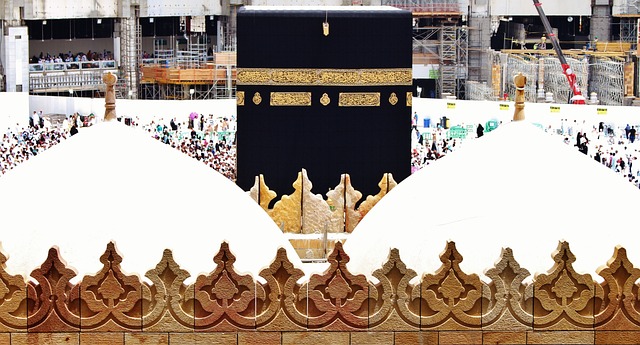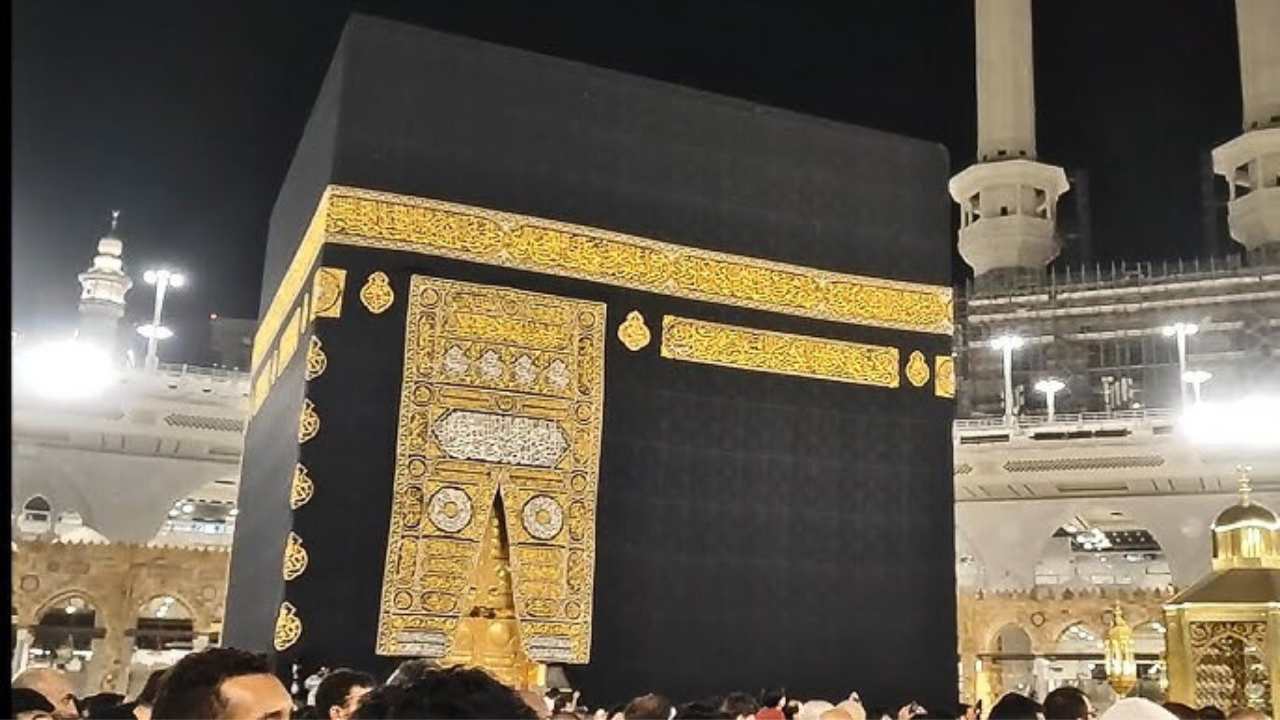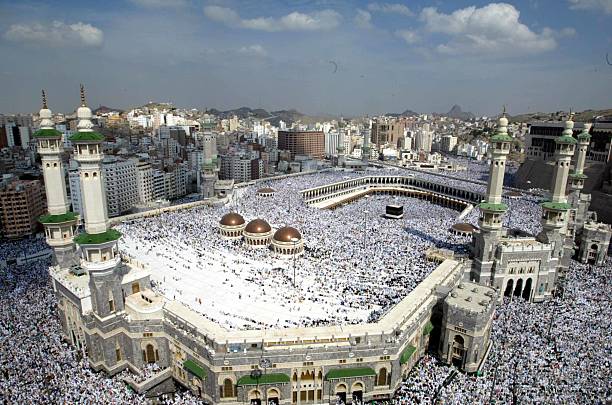What values did Hajj promote?
Hajj, the fifth pillar of Islam – goes beyond its significance as a religious duty, providing devotees a deep experience of spiritual growth and personal exploration. It is a journey to the sacred city of Makkah that encapsulates the spirit of Islamic faith, represented by profoundly significant rituals, prayers, and recitations. These holy practices not only satisfy a divine directive but also align with fundamental Islamic tenets, embedding eternal values in the hearts of worshippers. Here is an in-depth examination of the fundamental values that Hajj promotes:
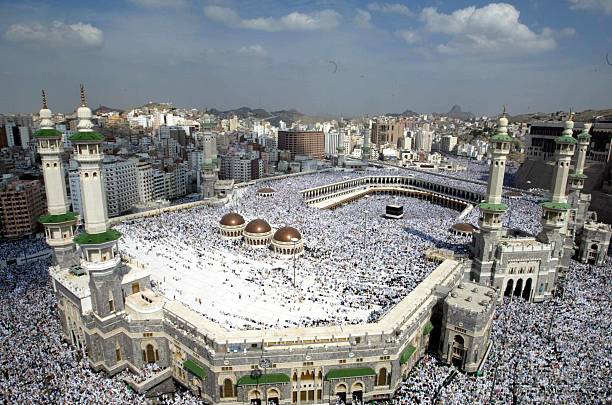
Unity and Brotherhood
The core values of Hajj, which brings together millions of Muslims from all over the world to worship Allah – are unity and fraternity. This extraordinary gathering unites all pilgrims under the banner of faith – overcoming barriers of nationality, race, language, and social standing. Dressed in the plain white attire of Ihram - representing purity and equality – pilgrims are reminded that, in the sight of Allah, everyone is equal. While they engage in prayer and carry out sacred rituals collectively, cultural and geographical boundaries fade away, nurturing a deep sense of unity and common goal.
The communal nature of Hajj highlights the significance of unity, harmony, and equality, emphasizing the shared obligation Muslims have towards each other. This unity stands as a strong proof of the inclusive and universal essence of Islam, fostering a refreshed dedication to shared understanding and solidarity among the worldwide Muslim community.
Faith and Spiritual Connection
The Hajj experience is centered on faith and spiritual connection, which serves as a powerful reminder of a Muslim's commitment to Allah. Pilgrims reaffirm their dedication to the principles of Islam and deepen their relationship with their Creator via holy rites like Wuquf at Arafat (the standing at Arafat), Sai (walking between Safa and Marwah), and Tawaf (circumambulation of the Kaaba). Each deed inspires a profound spiritual awareness and a heightened feeling of purpose by symbolizing submission, trust, and steadfast faith.
The journey promotes contemplation and serves as a reminder to pilgrims of life's ultimate purpose: to seek Allah's pleasure and live in accordance with His will. This bond goes beyond the physical, echoing within the soul and nurturing a feeling of peace, gratitude, and spiritual satisfaction that travelers hold onto long after their pilgrimage concludes. It is a life-changing event that strengthens the communal identity of the Muslim ummah worldwide in addition to reviving individual faith.
Humility and Equality
The Hajj experience is deeply infused with the concepts of equality and humility as pilgrims set out on a journey that eliminates materialistic attachments and worldly disparities. Wearing the plain white Ihram, pilgrims stand equal before Allah and symbolically remove symbols of wealth, social standing, and roles. This stunning illustration of oneness serves as a reminder that, in the Creator's sight, all people are alike, united by their common humanity and faith.
The Hajj rituals create a profound sense of humility and submission to Allah's will by highlighting the futility of worldly undertaking in the vast scheme of creation. Pilgrims are encouraged to adopt a mindset of thankfulness, self-awareness, and accountability by being reminded of their mortality and the fleeting nature of life. As it strengthens the principles of equality and international brotherhood within the Muslim community worldwide, this humble experience gives people a fresh sense of purpose and motivates them to pursue lives based on compassion, justice, and devotion.
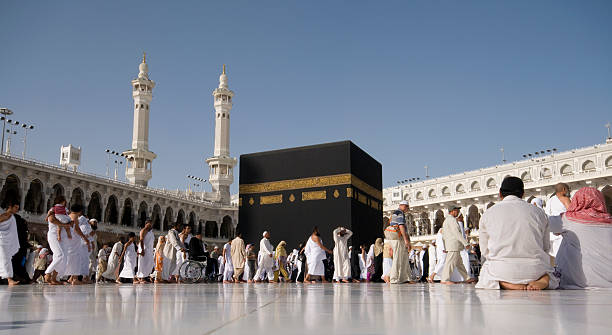
Forgiveness and Renewal
The Hajj experience is centered on forgiveness and renewal, providing pilgrims with a singular chance for significant spiritual growth. This holy voyage offers an opportunity to truly repent, ask Allah to pardon previous misdeeds, and purify the heart and soul of sin. Pilgrims concentrate deeply on themselves through worship and contemplation, admitting their flaws and working toward moral and personal development. The Hajj ceremonies, especially the standing at Arafat, symbolize a powerful plea for mercy and redemption, igniting hope and a feeling of the nearness of God.
This spiritual purification inspires people to let go of their old routines and worries and to make a fresh commitment to leading moral and God-conscious lives. The encounter is life-changing, leaving pilgrims with a lingering sensation of inner serenity and clarity that inspires them to sincerely and devotedly follow the teachings of Islam, signaling a new chapter in their spiritual development.
Self-Discipline and Sacrifice
The spiritual and practical aspects of Hajj are inextricably linked to self-discipline and sacrifice, which demonstrate the extreme commitment needed to complete this holy pilgrimage. Pilgrims prioritize their spiritual goals over material comforts and make tremendous financial, emotional, and physical sacrifices from the moment they start getting ready for the Hajj. The actual pilgrimage requires endurance and patience as pilgrims face the difficulties of lengthy journeys, packed ceremonies, and physical strain in a spirit of dedication and tenacity.
Every adversity turns into an act of worship, serving as a reminder of the ultimate objective of pursuing Allah's pleasure and becoming closer to Him. Detachment from materialistic wants is fostered by the Hajj's simplicity, which emphasizes the value of self-control, thankfulness, and humility. This demanding process strengthens faith, develops inner strength, and imparts the timeless lesson of making sacrifices for greater causes. The discipline that pilgrims acquire during the Hajj strengthens their resolve to live a life that is consistent with Islamic principles and gives them the spiritual skills they need to meet life's challenges head-on.
Community and social responsibility
The Hajj experience is profoundly rooted in community and social responsibility, emphasizing the value of group devotion and support. They are reminded of their interdependence as members of a worldwide Muslim community when millions of pilgrims from various backgrounds come together to conduct the sacred rites. Through overcoming the difficulties of the pilgrimage together and frequently supporting one another with deeds of kindness and generosity, this shared journey teaches important lessons in cooperation, patience, and empathy.
The Hajj places a strong emphasis on the Islamic values of compassion and the significance of considering the needs of others before oneself. A sense of need to give back and make an effective contribution to society is sparked by the pilgrimage's community aspect, which heightens awareness of the difficulties and sufferings endured by fellow people. Hajj upholds the principles of social justice, almsgiving, and the common obligation to strive for the advancement of the ummah and all of mankind by fostering unity and a sense of purpose.
The Spiritual Symbolism of Hajj Rites
Each Hajj ceremony has significant spiritual meaning, embodying the core principles of Islam and imparting teachings that speak to a believer's soul deeply:
-
Ihram: Removes worldly divisions and prepares the soul for divine contact. It symbolizes purity, equality, and the desire to devote oneself fully to Allah.
-
Talbiyah: A sincere declaration of surrender and dedication to God that confirms a pilgrim's readiness to respond fully and humbly to Allah's call.
-
Tawaf: Symbolizes unity, the significance of Allah in a believer's existence, and the continuous connection between the Creator and His creation, as pilgrims move around the Kaaba in unison.
-
Sai: Hazrat Hajra's unwavering effort and reliance on Allah's kindness during her search for water for her son serve as an example of endurance, faith, and confidence in Allah.
-
Wuquf at Arafat: A time of profound introspection, prayer, and requesting forgiveness – representing the Day of Judgment and the aspiration for Allah’s mercy and approval.
A Lasting Impact on Individuals and Society
Hajj etches a lasting impression on the souls of pilgrims, changing them into people who are profoundly aware of their beliefs, intentions, and duties. Muslims are encouraged to live lives that are focused on self-discipline, service to others, and devotion to Allah by the virtues that are implanted along this holy journey: faith, humility, patience, and compassion. Returning with a fresh sense of purpose, pilgrims are motivated to live out Islamic values in their everyday encounters and make constructive contributions to their communities.
As a whole, the Hajj experience strengthens the Muslim ummah worldwide by reaffirming social values of equality, brotherhood, and solidarity across national and cultural divides. A spirit of cooperation and respect is fostered by this common goal and solidarity, which has a long-lasting effect on both the individuals who travel and the cultures they return to, enhancing them with the ideals of harmony, peace, and humanity.
Hajj is more than merely a set of rituals; it represents a deep spiritual voyage that encapsulates and advocates the fundamental principles of Islam. Unity, faith, humility, forgiveness, self-discipline, and community are key principles that pilgrims bring along, transforming Hajj into an experience that goes beyond the physical trip to Makkah.
